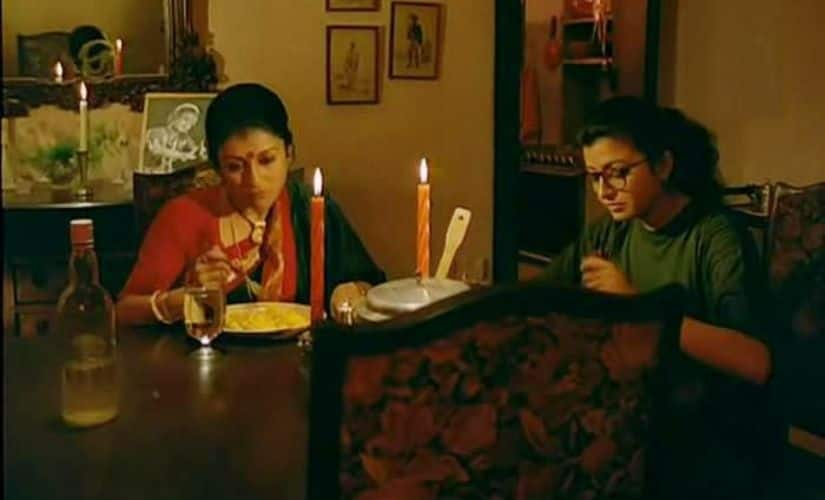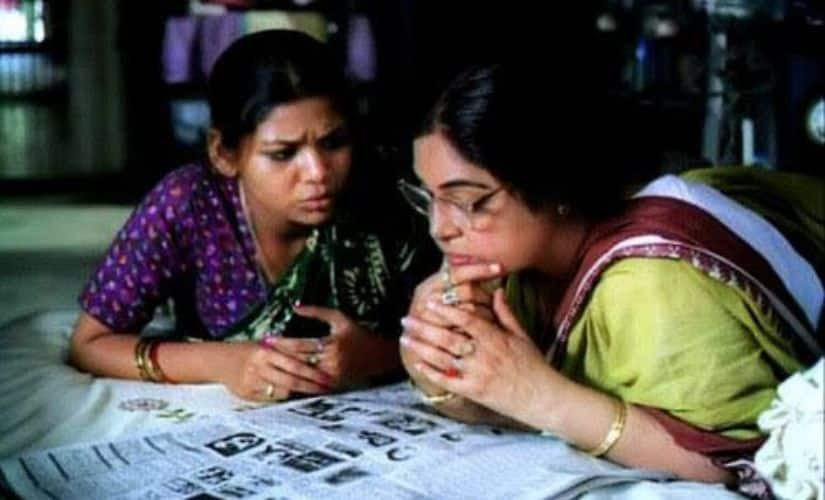It was the sultry month of May in Kolkata, when I woke up to a stranger of an overcast sky during this time of the year, followed by the news of Rituparno Ghosh’s sudden death. Funny, that I choose to open a piece written to celebrate him on what would’ve been his 56th birthday, with memories of when he breathed his last, six years ago. It is perhaps because one realises how the moment of his death was, in fact, the most poignant culmination of the profundity and conflicts he came to live with. Ghosh had seemingly abandoned his social life during his final few years, harbouring a deep sense of isolation after letting the world know about his sexuality. He, who celebrated the fluidity of being, and came to reject the boundaries of one’s flesh, was left trapped within the confines of his own home. [caption id=“attachment_7250991” align=“alignnone” width=“825”]  Filmmaker Rituparno Ghosh. Facebook/ChaplinTalkies[/caption] I was merely 12 when I first stumbled upon Ghosh’s name on the telly, again during one such summer month. The local cable channel was playing his National-award winning Unishe April (1994), the artiste’s second directorial venture. The central character of Sarojini, played by Aparna Sen, confounded me. She was a widow wearing a mangalsutra, almost subverting its significance as a patriarchal tool branding a woman with the stamp of marriage. The sight was bizarre, almost intriguingly offensive to a child in an Indian middle-class family, who knew no better. It was only recently that I learnt Ghosh hadn’t added this detail to shock his audience, even though he had anticipated such a reaction after the film released. “When the film released, I realised that many could not identify with Sarojini’s plight…I believe, because Sarojini did not feel victimised as a widow, Aditi (the daughter, played by Debashree Roy) took away the sympathy of the audience…the so-called Bengali middle-class audience,” he’d said in the interview. A woman’s lack of victimhood is indeed an affront to middle-class sensibilities of feudal aspirations. As girls born into such households, we have — more often than not — been burdened with the promises of an independent tomorrow, provided our fathers, brothers, and husbands were comfortable with it. The next time I met another one of Ghosh’s heroines — borrowed from Rabindranath Tagore’s Chokher Bali — I failed to find a victim in her either. I encountered Binodini (essayed by Aishwarya Rai in the film) only months after being stunned by the visual opulence of Sanjay Leela Bhansali’s Devdas (an adaptation of Bengali writer Sarat Chandra Chattopadhyay’s novel by the same name), where the same Rai languished in a hyper-masculine, toxic universe. And yet, Ghosh chose to call his films “womanist”, and not “feminist”. His worlds weren’t unfamiliar or devoid of misogyny – they only threatened to spill over their familiar boundaries, challenging the ‘bhodrolok’ with uncomfortable questions. *** As a woman growing up in the ’90s and early 2000s in Bengal, barely a few years away from moving out of my hometown — which ceased to hold any glorious promises for the future — my hopes (like most of my peers’) were pinned on some pop-culture dreams. At the turn of the century that was ushered in by Farhan Akhtar’s Dil Chahta Hai, our heroes woke up to the evils of on-screen stalking, and our heroines refused to play props. We binged, wide-eyed, on the countless new possibilities women seemed to be pursuing in their fictional on-screen lives across various cities in India, except Kolkata. This city still dreamt in sepia, housing a commercial film industry that continued to spiral downward in quality. As I geared up to set foot into alien territory, armed with a dying sense of pride in the “Bengali culture”, I sought hope and comfort in Rituparno Ghosh’s art. [caption id=“attachment_7251011” align=“alignnone” width=“825”]  A scene from Rituparno Ghosh’s Unishe April (1994). YouTube screenshot.[/caption] At a time when Hindi cinema was still struggling to recover from its disastrous and sexist ’80s hangover, Ghosh’s craft had risen like a phoenix from the ashes of a Tollywood best forgotten. Here was a storyteller, with countless National Awards to his name, who was being touted as a worthy successor to the Rays and Ghataks. As Bengal scrambled to fill this intellectual void left behind by its parallel filmmakers from the ’50s, right up to 1992 (incidentally the same year in which Ghosh made his debut with Hirer Angti), a section of millennials woke up to the wonders hidden in the everyday mediocrities of life, as portrayed in his cinema. Here was an ageing, limping widow in Bariwali (1999), played by Kirron Kher, who nurtured sexual desires that were forbidden and unheard of for a woman of her age. In Titli (2002), a mother and daughter turned rivals in love, fantasising about the same man. With Dahan (1997), he threw open the discussion on the yet-to-be-recognised phenomenon of marital rape; in Utsab (2000), incestuous relations and their buried skeletons threatened to derail a household indulging in festivities. These were my first lessons in feminism (even before I had heard the term), and my first encounters with fictional faces that seemed all too real — ones that did not prescribe to the black-and-whites of fragile textbook and mainstream moralities. They were steeped in myriad shades of grey. Rituparno Ghosh created worlds dangerously close to reality, unapologetically holding a mirror to our faces and daring us to square up to our shortcomings as a failing society. [caption id=“attachment_7251021” align=“alignnone” width=“825”]  A scene from Rituparno Ghosh’s Bariwali (1999). YouTube screenshot.[/caption] *** The internet had taken over our lives by the time I first stepped out of home to live on my own in the capital. By then, it had schooled and trained our echo chambers into becoming feminists under-construction. My peers and I felt the pressing need to always be open to being quizzed on our beliefs — for us, it was the only way forward. Soon after, I realised I had been wearing this liquid state of being as a second skin for quite some time. Perhaps it all started that one fine summer afternoon, when my 12-year-old self discovered the thrill of encountering the unknown, with an image of a widow wearing a mangalsutra on the unassuming cable TV.
On Rituparno Ghosh’s 56th birthday, here’s remembering an artiste extraordinaire, for his cinema that inspired and challenged society in ways more than one. From Unishe April to Chitrangada: The Crowning Wish, Ghosh’s cinema was both personal and political, with the line between the two often being heavily blurred.
Advertisement
End of Article


)
)
)
)
)
)
)
)
)



